Physician-scientist’s innovative, interdisciplinary diabetes research funded by the Doris Duke Charitable Foundation
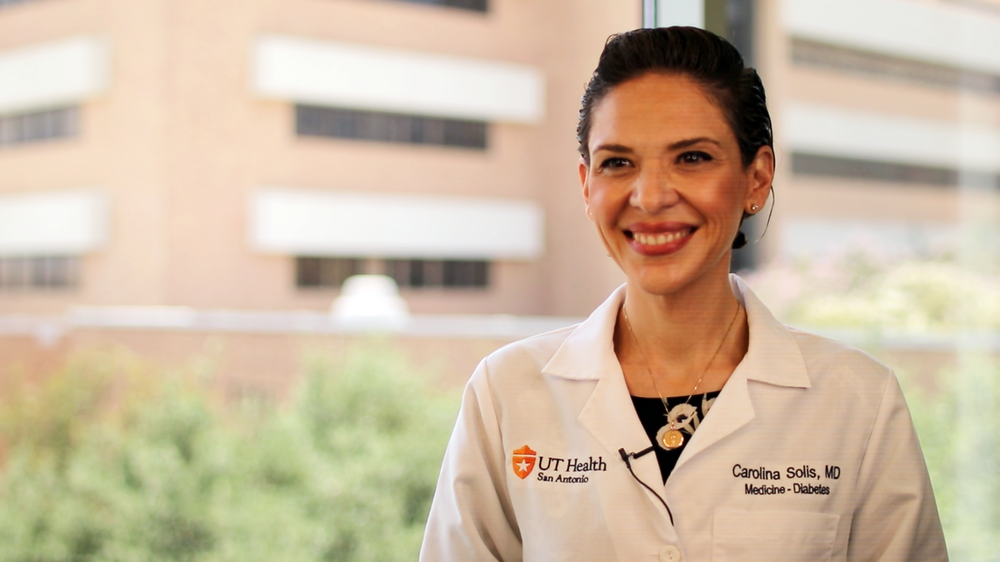
Carolina Solis-Herrera, MD, assistant professor of medicine at The University of Texas Health Science Center at San Antonio, is the recipient of the prestigious 2021 Doris Duke Charitable Foundation (DDCF) Clinical Scientist Development Award. Dr. Solis-Herrera’s innovative and high-impact research focuses on sodium-glucose transport protein 2 (SGLT2) inhibitors, a class of medications used to treat Type 2 diabetes. Hers was the only diabetes-related project among the 20 selected from a total of 254 submissions from around the country and the only project led by a physician-scientist in the Southwestern United States, including Texas. Click here to hear Dr. Solis-Herrera explain the innovative study by watching a three-minute video.

Carolina Solis-Herrera, MD, assistant professor of medicine at The University of Texas Health Science Center at San Antonio, is the recipient of the prestigious 2021 Doris Duke Charitable Foundation (DDCF) Clinical Scientist Development Award. Dr. Solis-Herrera’s innovative and high-impact research focuses on sodium-glucose transport protein 2 (SGLT2) inhibitors, a class of medications used to treat Type 2 diabetes. Hers was the only diabetes-related project among the 20 selected from a total of 254 submissions from around the country and the only project led by a physician-scientist in the Southwestern United States, including Texas.
Inspired from an early age to make lives better
Growing up in Sonora, Mexico, Dr. Solis-Herrera, medical director of the Diabetes Clinic at UT Health Physicians’ Medical Arts & Research Center (MARC), knew from the age of 5 that she wanted to have a positive impact in helping people live healthier and therefore happier lives. She knew the effects of living with diabetes from family members and people in her community.
Solis-Herrera recalls that the more she learned how the human body works as a medical student and resident, the more intrigued she became. “This led me to pursue my career as a physician-scientist, as this combination has the ability to make a more significant impact and translate to new discoveries and ways of providing better patient care and health outcomes,” she said.
Board-certified in Mexico, Dr. Solis-Herrera accepted a four-year postdoctoral fellowship in diabetes and metabolic research at UT Health San Antonio. With it came the opportunity to be mentored by world diabetes expert Ralph DeFronzo, MD, professor of medicine and chief of the Division of Diabetes, and deputy director of the Texas Diabetes Institute. He is renowned for his breakthroughs and seminal discoveries in Type 2 diabetes research during the past 40 years.
Private foundations and mentors key to achieving research objectives
Dr. Solis-Herrera considers herself fortunate to be surrounded by encouraging mentors and the ability to collaborate with a prestigious interdisciplinary team on her SGLT2 research project. In addition to Dr. DeFronzo, MD, she works with Nicholas Musi, MD, director of the Sam & Ann Barshop Institute for Longevity and Aging Studies; Sara Espinoza, MD, director of the San Antonio Geriatric Research, Education and Clinical Center and a member of the Barshop Institute; Peter Fox, MD, director of the Research Imaging Institute (RIC); Geoffrey Clark, PhD, chief of the RIC’s MRI division; Curtis Triplitt, PharmD, the TDI’s associate director of clinical research; Eugenio Cersosimo, MD, PhD, the TDI’s medical director of research; Allen Anderson, MD, chief of the Division of Cardiology; and Robert Chilton, DO, director of the cardiac catheterization laboratory at the Audie Murphy VA Medical Center and UT Health San Antonio.
The new award expands the cardio-metabolic research supported by the Voelcker Fund in 2018. The DDCF-funded research will explore the effects of SGLT2 inhibitors on cardiac and skeletal muscle bioenergetics, cardiopulmonary function and quality of life. Click here to watch and listen as Dr. Solis-Herrera explains the study.
Seeking community participants for novel SGLT2 studies
To inquire about eligibility to join Dr. Solis-Herrera’s study, call Jane Qin at (210) 358-7236 or email her at qiny@uthscsa.edu. If you are interested in an SGLT2 clinical trial for older adults with prediabetes or other aging or longevity research studies at the Barshop Institute, please call (210) 450-3333 or click here.
 |
|
 |  |
 |  |
The Institutional Biobank: Scaffolding Precision Medicine
 |
“With the goal to educate the South Texas communities we serve on what is a biobank, what role does it play in precision medicine, and how the community can partner with us in this new era of science, a video was created,”explained interim Vice President for Research Jennifer Sharpe Potter, PhD, MPH. Dr. Potter credits her predecessor, Andrea Giuffrida, PhD., for his accomplishment of this strategic priority during his tenure. Securing a $2.5 million gift from the J.M.R. Barker Foundation in partnership with Debbie Morrill, Vice President for Institutional Advancement, was instrumental in funding the space renovation in the Research Administration Building on the Greehey Campus.
The Institutional Biobank is a member of the University of Texas System Health Biobank (UTSHB) Consortium, an initiative designed to bridge the gap between researchers seeking biospecimens/related data and researchers with biospecimens /related data consented for sharing. Click here to view the video.
 |  |
Briscoe Library seeks to foster community dialogue on DEI
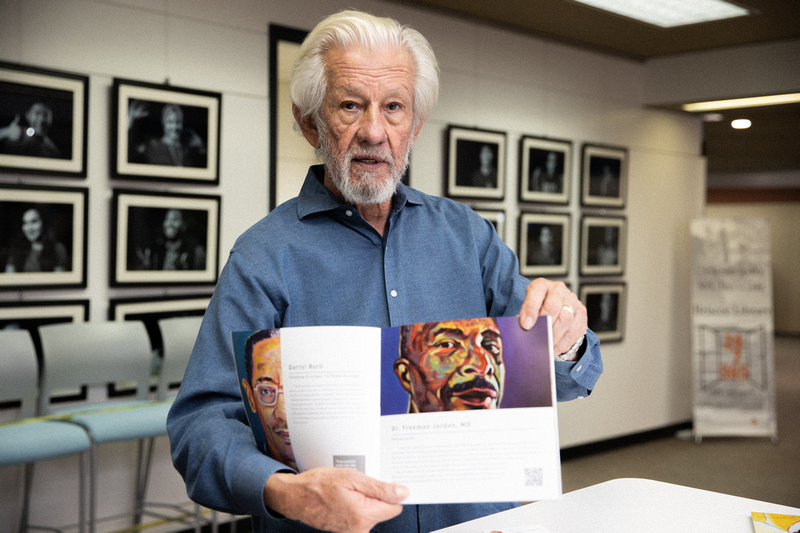
A more localized understanding of diversity, equity, inclusion (DEI) and systemic social injustice has been captured with a traveling exhibit created by renowned Hispanic national leader and artist Lionel Sosa. From Sept. 27-Oct. 4, “Living in My Skin,” a collection of more than 30 oil paintings can be viewed at the Briscoe library. As health care professionals and scientists, you are invited to engage in a social media conversation on the impact of racial and social injustices. Stay connected by following the library’s social channels — Facebook, Twitter and Instagram.
School of Dentistry places #34 in international ranking
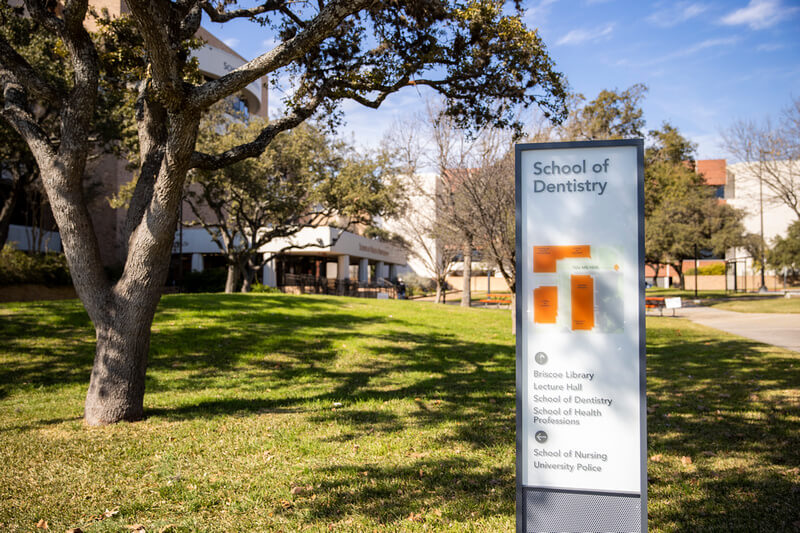
The School of Dentistry ranked 34th worldwide in the annual Academic Ranking of World Universities, also known as the ShanghaiRanking, in the category of Dentistry & Oral Sciences. The global rankings contain comparisons in 54 subject areas and use a range of data to measure performance including research quality, research influence, international collaboration and international academic awards. The School of Dentistry’s innovative research also ranks it as the leading dental school in Texas and #13 nationally, according to the latest Blue Ridge Annual Report, which tracks National Institutes of Health funding.
Researchers: Get ready to explore your ideas and test your business proposition
The Office of Technology Commercialization (OTC) launched TechNovum-GO earlier this month. This is a guided online and self-paced program designed to encourage researchers and faculty entrepreneurs to explore the full business potential of their creative biomedical research ideas. The online sessions, which can be accessed on demand, include design tool tutorials, video tips, pitch templates and much more. The self-paced modality enhances the current in-person entrepreneurship programming offered by the OTC and life science partners.
What did you say about the Navigating the Research Lifecycle website?
This summer, we solicited your input on the redesigned research administration website, “Navigating the Research Lifecycle,” that launched in February. We appreciate the responses, which overall were positive. Users, particularly those who used the website heavily, commented that they were experiencing a learning curve to find content now curated in a new format. New customer service functionalities, such as the help feature and scheduling a concierge appointment, were viewed as positive enhancements. Website development is an iterative process, and your suggestions will inform additional changes in the year ahead.
|
 |  |
$1.6 million UT System STARs award to advance research on aging and breast cancer
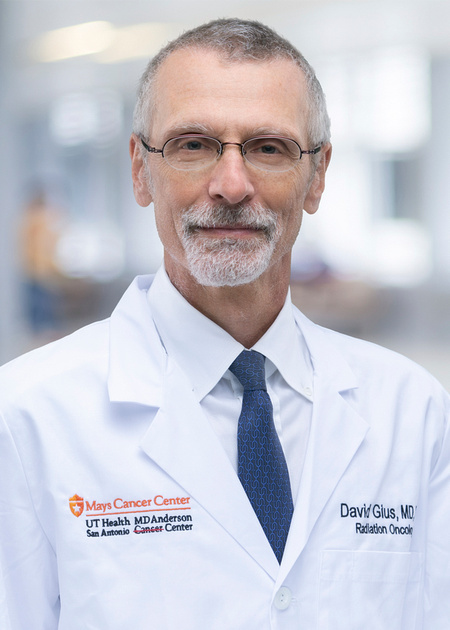
David Gius, MD, PhD, professor and Associate Cancer Director of Translational Research, has been awarded a $1.6 million UT System Faculty STARs award to support his research on aging and breast cancer. The award will be used to purchase equipment to conduct more in-depth experiments in his laboratory at the Sam and Ann Barshop Institute for Longevity and Aging Studies. Dr. Gius said one vital tool is a scanning electron microscope that creates a 3-D reconstruction of the mitochondria.
$1 million UT System STARs award helps launch Center of Excellence for the Structural Biology of Human Diseases
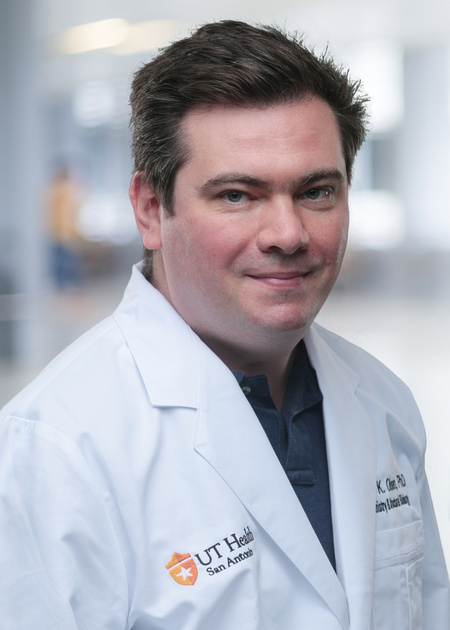
Shaun K. Olsen, PhD, associate professor in the Department of Biochemistry & Structural Biology, is the recipient of the UT System Faculty STARs award. This award will allow him to obtain next-generation structural biology equipment, such as cryo-electron microscopy, enhancing the infrastructure for researchers and pre-clinical drug development. The funding further advances his goal to establish an interdisciplinary, collaborative center for cancer, metabolic and neurodegenerative disorders by next summer.
Trauma surgeon and inventor advances redesigned retractor to patient testing in hospitals in San Antonio and Austin
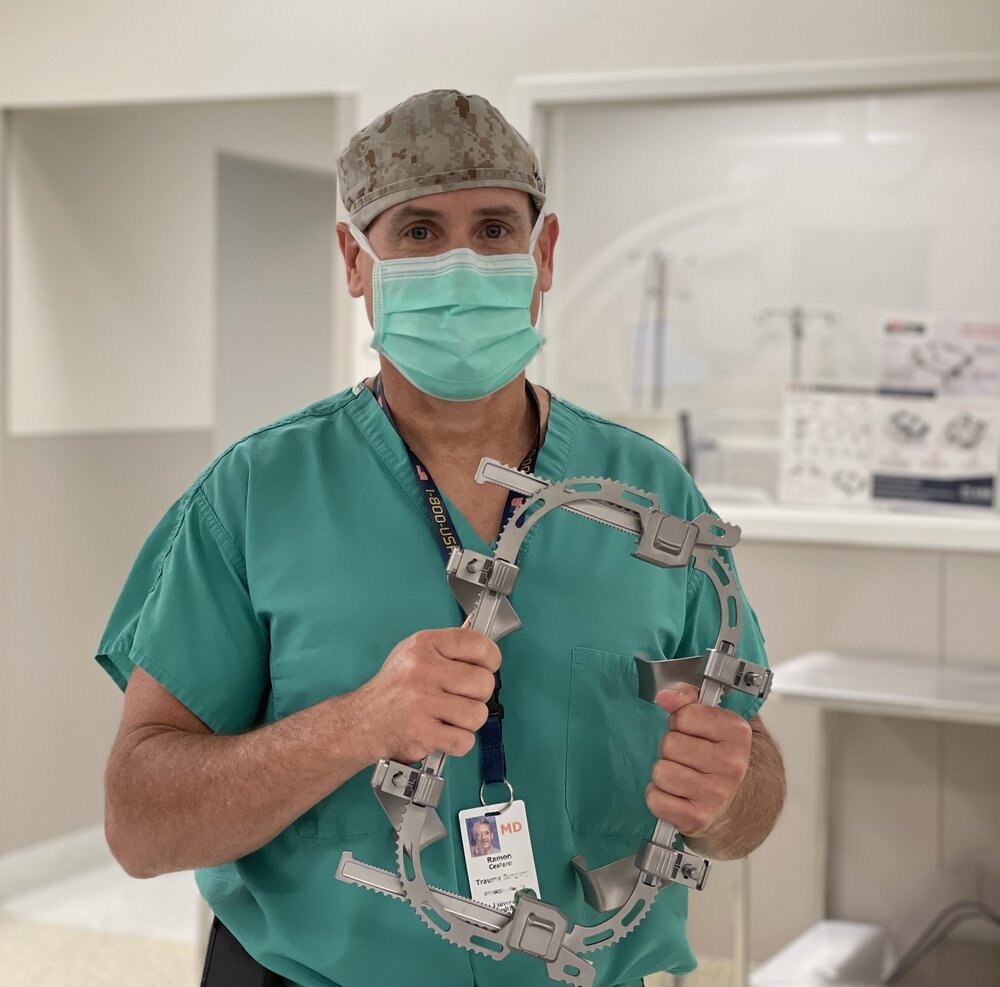
Ramon Cestero, MD, MBA, FACS, FCCM, clinical professor in the Department of Surgery, invented the Titan CSA, a retractor, disrupting current surgical instrument technology that has remained the same for more than 100 years. His frustration led him to develop a pathway from concept to reality, with support from Office of Technology Commercialization and the President’s Translational and Entrepreneurial Research Fund. Dr. Cestero’s retractor has undergone patient testing at University Hospital, achieving efficacy — and is now being tested in Austin at the Dell Seton Medical Center at The University of Texas.
Institutional core labs secure $4.6 million for technology to accelerate research discoveries
“Funding from the National Institutes of Health (NIH) Shared Instrumentation program and the Cancer Prevention and Research Institute (CPRIT) Core Facility Support program allows state-of-the art technology to be purchased for highly used institutional core labs by UT Health San Antonio researchers, but also made available to external research partners,” said Ramiro Ramirez-Solis, PhD, director of the institutional core labs. He added, “Writing these grants is very time intensive, so I am delighted that Michael Berton, PhD; Alex Taylor, PhD, and Exing Wang, PhD, were successful in their efforts to support the research enterprise.”
“Funding from the National Institutes of Health (NIH) Shared Instrumentation program and the Cancer Prevention and Research Institute (CPRIT) Core Facility Support program allows state-of-the art technology to be purchased for highly used institutional core labs by UT Health San Antonio researchers, but also made available to external research partners,” said Ramiro Ramirez-Solis, PhD, director of the institutional core labs. He added, “Writing these grants is very time intensive, so I am delighted that Michael Berton, PhD; Alex Taylor, PhD, and Exing Wang, PhD, were successful in their efforts to support the research enterprise.”
The $3,623,500 CPRIT grant will allow the Flow Cytometry Core Lab to purchase new technology that enables scientists to more efficiently study cellular characteristics in a single experimental or clinical sample. With the NIH funds, the Optical Imaging Core Lab will purchase a ZEISS Lightsheet 7 and the Structural Biology Core Lab will purchase the Rigaku HyPix-6000HE Hybrid Photon Counting (HPC) Detector, VariMax-VHF confocal optic and Universal Goniometer.
For biomedical research to be conducted and published at the speed we’ve witnessed with COVID-19 the past 18 months, this investment in these centralized shared research resources is required, Dr. Ramirez-Solis added.
 |
|
 |  |
Clinical Research & Clinical Trials
|
Revised advertising guidelines aim to leverage social media platforms
 |
In response to the increasing use and effectiveness of social media for marketing and recruitment of participants for clinical studies, the Institutional Review Board (IRB) partnered with the Marketing, Communications and Media (MCM) department to revise the institution’s advertising guidelines. The goal is for investigators and research teams to understand their role and responsibilities when using social media for clinical trials recruitment and to submit plans for expeditious review by the IRB.
Last month more than 55 participants joined the Research Forum (held virtually). The forum covered advertising and social media guidelines, e-Velos features for tracking recruitment, budget analysis, sponsor reimbursements and marketing services. A marketing plan developed for the Topical RAPA clinical trial led by Ellen Kraig, PhD, and co-principal investigator Dean Kellogg, MD, PhD, was shared with forum participants to illustrate the new marketing service. To access the webinars, click webinar series archives.
 |
|
|
|